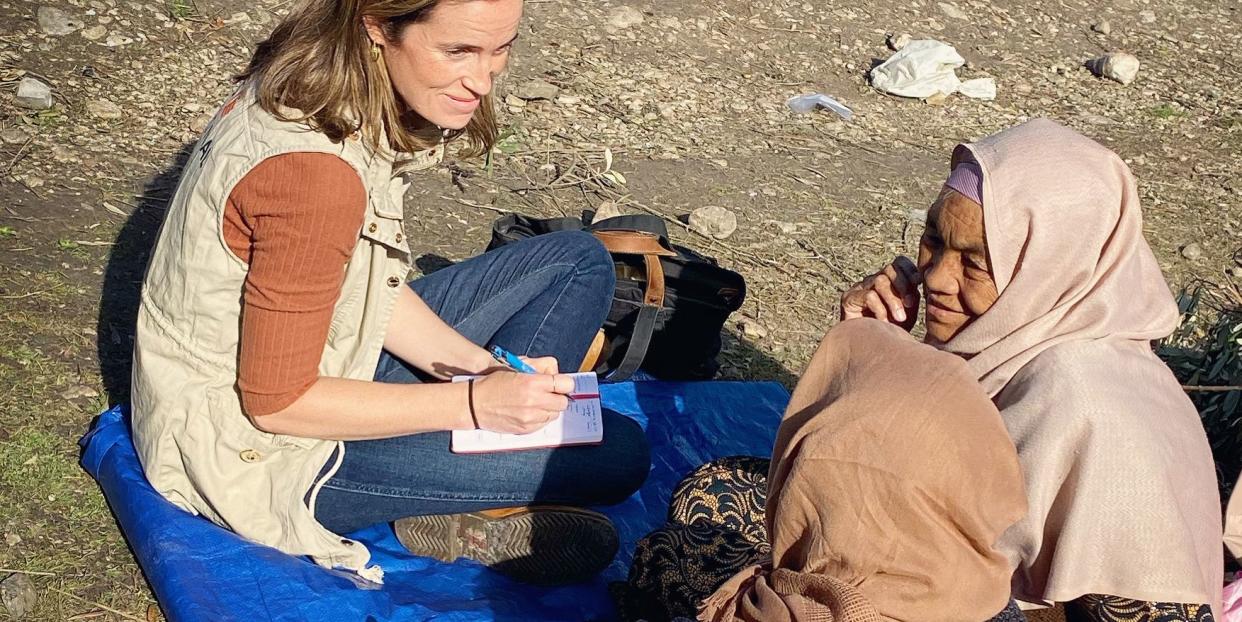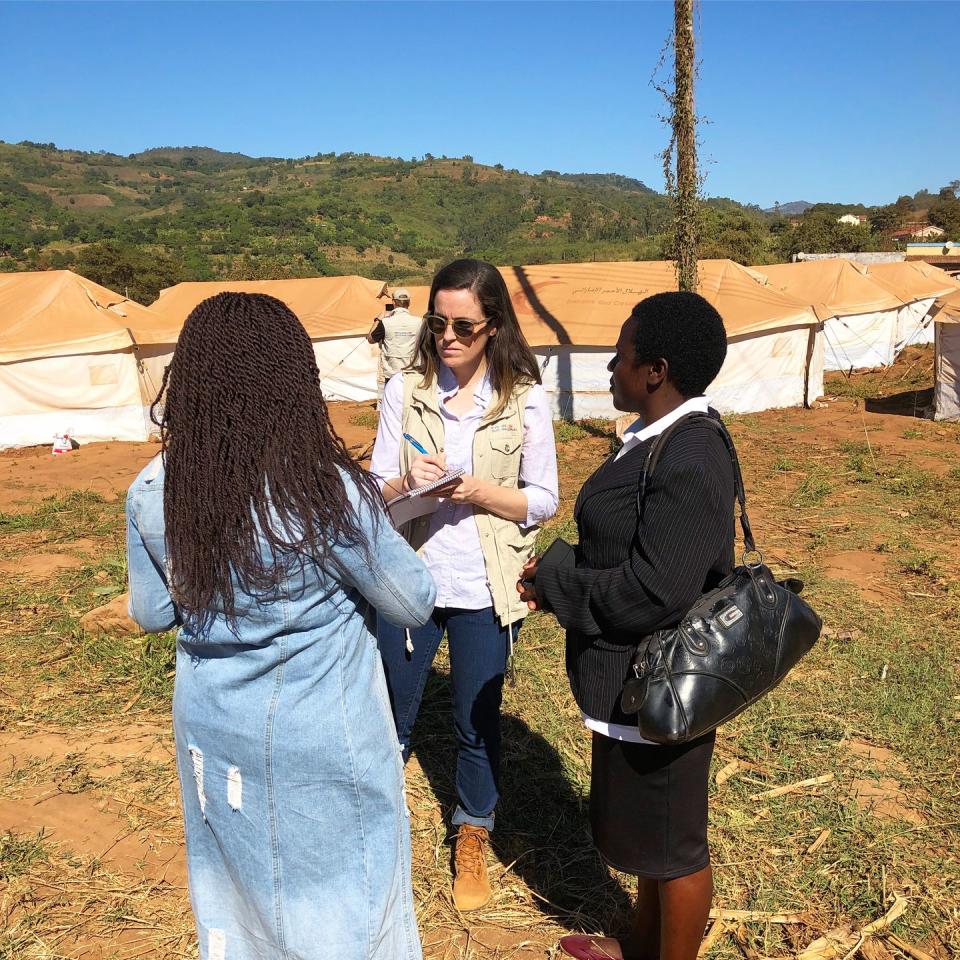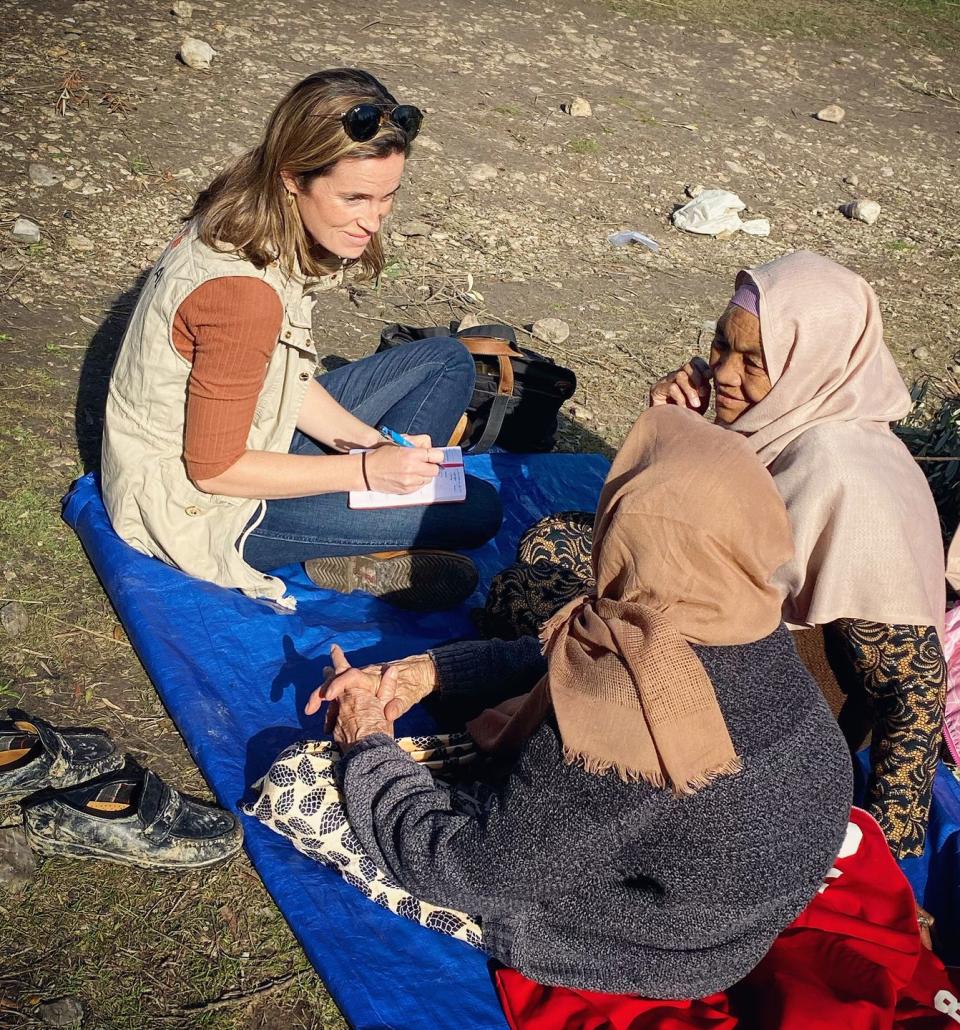How COVID-19 Is Affecting Refugee Women and Girls

When Devon Cone considered what she might do when she grew up, she always imagined listening to people, reporting on issues, and being an intermediary between remarkable situations and the public. In short: She imagined herself right here. Cone has been working on refugee protections for the last 15 years; she first encountered one of the largest refugee camps in the world during an internship and never looked back. She worked for the United Nations High Commissioner for Refugees and HIAS before starting her job as the senior advocate for women and girls at Refugees International, an advocacy organization that conducts research and fact-finding missions to write reports and make policy recommendations on how to improve the lives of refugees and displaced people.
Typically, this means traveling around the world to where there's forced displacement and interviewing women and girls on the ground. But due to the COVID-19 pandemic, Cone is now working from Colorado, navigating her job while adhering to recent travel restrictions. Below, she talks about how the novel coronavirus has been affecting refugees worldwide, how her work has changed, and how she's navigated a high-stakes career.
How has your job changed because of COVID-19?
I really value being able to witness firsthand situations in which refugees, asylum seekers, and internally displaced people live. Usually, I have to be able to speak directly and witness their emotions, their environments, and their challenges. Sometimes, to get the real information from someone or to truly understand what is going on somewhere, you have to be face-to-face. I can't count the number of times a staff member in a camp or a refugee or even a government official has told me something really important, but it was over a cup of tea at a local cafe where it's informal and they feel as though they can speak more candidly. With the global restrictions on travel at the moment, obviously that's not possible.
I am relying on my local contacts and local organizations who are still working on the ground in these humanitarian crises. They are refugees themselves or community leaders or local staff of non-governmental organizations who are doing remarkable work amidst all odds and, in some cases, at personal risk to themselves. I have always advocated for local community members to be empowered and their voices elevated because, of course, they know their communities best and they have trust that we will never gain as people who travel from one location to the next. I am hopeful that long after the pandemic, we will continue to prioritize local voices and continue to recognize that people who are often overlooked, in fact, have extraordinary capabilities.
How has COVID-19 affected refugees around the world?
The COVID-19 pandemic demonstrates how deeply connected we all are and how our health and well-being depends on the health and well-being of everyone in our society. So exactly at the time during which we need to be more inclusive and global in our thinking, many nations are turning inward as they seek to protect their citizens.
Even before the pandemic, these were some of the most vulnerable and marginalized people worldwide. Now the challenges refugees already faced are exacerbated by the pandemic and measures to control the spread of the virus. Many countries have closed their borders and suspended all asylum applications, making it virtually impossible for refugees fleeing violence in their home countries to find safety. People who have already left their countries and are living as refugees are often in cramped, overcrowded conditions with limited access to water, soap, and healthcare.
The pandemic has had an even greater effect on female refugees. Refugee girls are out of school and, from previous research, we know that refugee girls are less likely than boys to return to their education once it has been interrupted. Refugee women also often support their families by working in the informal economy, jobs like selling food in markets. Because of the pandemic, most of these jobs have disappeared. Gender-based violence—already a huge problem in refugee situations—is dramatically increasing during the pandemic. To make matters worse, many of the services to assist survivors of gender-based violence and provide crucial health care to refugee women and girls have been disrupted.

When you are traveling, how do you stay compassionate and respectful and still get the information you need?
In the beginning of this work, I thought that it was important to be really empathetic, and it is, but empathetic in a professional way. I try to explain it like a doctor. If you tell a doctor about a situation you have, you don't want the doctor to say, "Oh my gosh, that's really scary and terrible," even if it is. You want a doctor to acknowledge that you're in a difficult situation, acknowledge that you have a problem, a serious problem, but also not show that it's shocking and make it clear that [you're] not alone.

Your job sounds like it can be overwhelming. Does it feel that way?
The scope of the work and the issues at hand are overwhelming, but it's also overwhelming to try to change policy and have the successes be very limited sometimes—and very difficult to achieve. I try to look at it as more of an opportunity. There's so much I can learn and so many places I can visit that need assistance and need an outside voice to help raise their voices. I also try to prioritize. There are more than 70 million forcibly displaced people in the world. To be honest, since I've started this career 15 years ago, the numbers have only grown. The pushback against refugee rights has only increased.
Obviously this is quite a high-stakes job. Is there ever a time that you felt like you failed? How did you move through that?
I was working on the resettlement case of a Syrian family that was living in a neighboring country. The family had a seven-year-old with leukemia, and he and his mother were going back and forth over the border to Syria to get chemotherapy. From the recommendations of everyone I worked with, I recommended to them that they stop going across the border because they may get stuck in Syria, and they had a resettlement case to Canada pending. But long story short, the Canadian government took too long; it was all bureaucratic. I went back to visit that family right before they were being resettled, and the boy had deteriorated so much that he couldn't move. Medical professionals that I know say that if what he had was Stage IV leukemia, he probably did not survive, whether it was before he left or after he got to Canada. Experiences like that I will not forget. You just wonder if you could have done more.

Working to protect the rights of refugees and advocating for policy changes to improve their lives is difficult. And in my experience, it has only become more challenging over the last few years. So I feel like I am always failing. Every day I think about the displaced people I meet who have very little control over their own lives and continue to live in extremely dangerous situations. No matter how many reports I write or meetings I have or facts I present, many of these refugees remain in really awful situations. But I am also always inspired by their resilience, and I take every small success as a huge victory especially because when I am actually able to influence a policy to change, it can have positive effects on tens of thousands, even millions of vulnerable people.
This interview has been edited and condensed for clarity.
You Might Also Like
